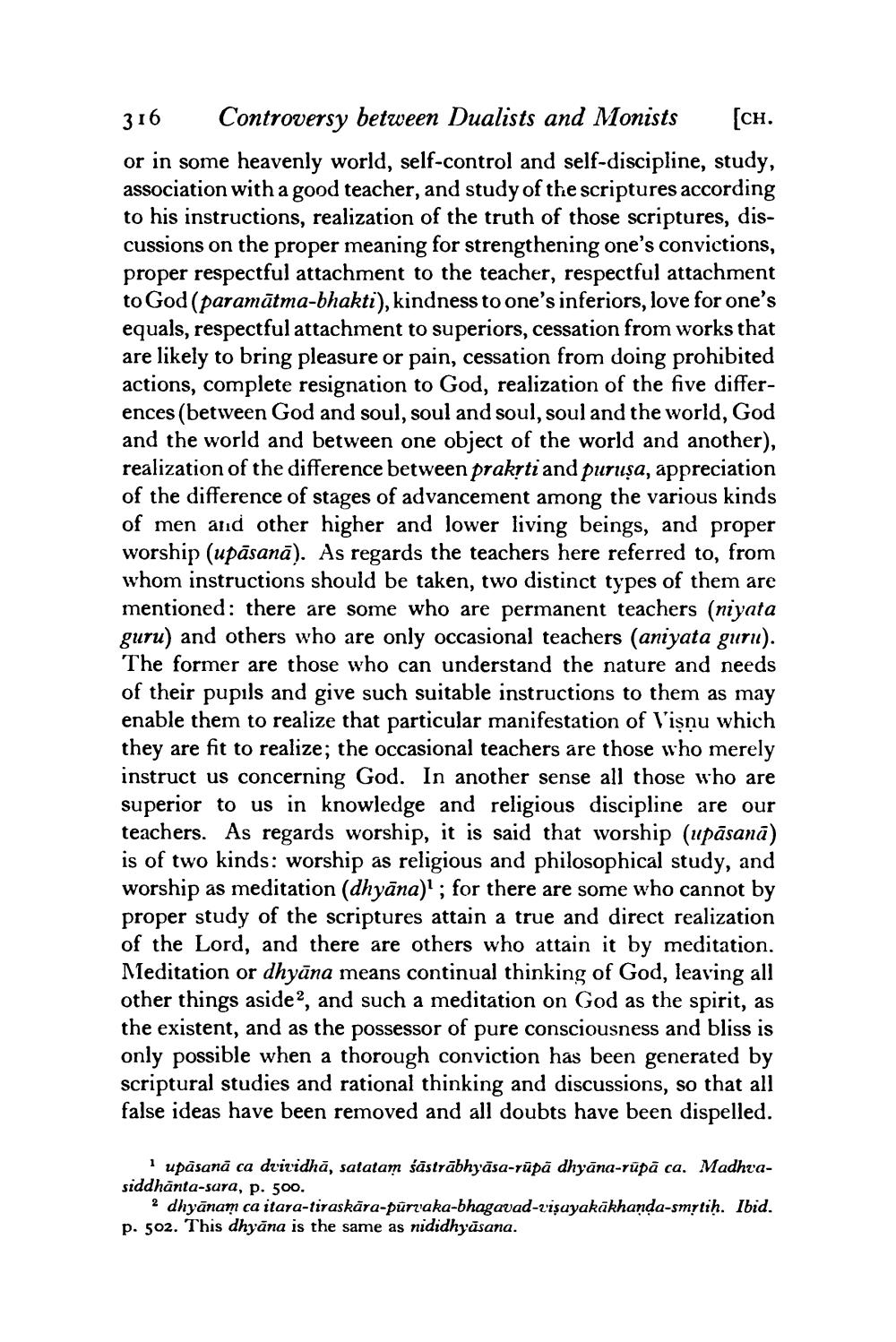________________
316 Controversy between Dualists and Monists [CH. or in some heavenly world, self-control and self-discipline, study, association with a good teacher, and study of the scriptures according to his instructions, realization of the truth of those scriptures, discussions on the proper meaning for strengthening one's convictions, proper respectful attachment to the teacher, respectful attachment to God (paramātma-bhakti), kindness to one's inferiors, love for one's equals, respectful attachment to superiors, cessation from works that are likely to bring pleasure or pain, cessation from doing prohibited actions, complete resignation to God, realization of the five differences (between God and soul, soul and soul, soul and the world, God and the world and between one object of the world and another), realization of the difference between prakrti and purusa, appreciation of the difference of stages of advancement among the various kinds of men and other higher and lower living beings, and proper worship (upāsanā). As regards the teachers here referred to, from whom instructions should be taken, two distinct types of them are mentioned: there are some who are permanent teachers (niyata guru) and others who are only occasional teachers (aniyata guru). The former are those who can understand the nature and need of their pupils and give such suitable instructions to them as may enable them to realize that particular manifestation of Visnu which they are fit to realize; the occasional teachers are those who merely instruct us concerning God. In another sense all those who are superior to us in knowledge and religious discipline are our teachers. As regards worship, it is said that worship (upāsanā) is of two kinds: worship as religious and philosophical study, and worship as meditation (dhyāna)'; for there are some who cannot by proper study of the scriptures attain a true and direct realization of the Lord, and there are others who attain it by meditation. Meditation or dhyāna means continual thinking of God, leaving all other things aside, and such a meditation on God as the spirit, as the existent, and as the possessor of pure consciousness and bliss is only possible when a thorough conviction has been generated by scriptural studies and rational thinking and discussions, so that all false ideas have been removed and all doubts have been dispelled.
i upāsanā ca drividhā, satatam śāstrābhyāsa-rüpă dhyāna-rüpā ca. Madhrasiddhanta-sura, p. 500.
? dhyānam ca itara-tiraskāra-pūrvaka-bhagavad-vişayakākhanda-smytih. Ibid. p. 502. This dhyāna is the same as nididhyāsana.




